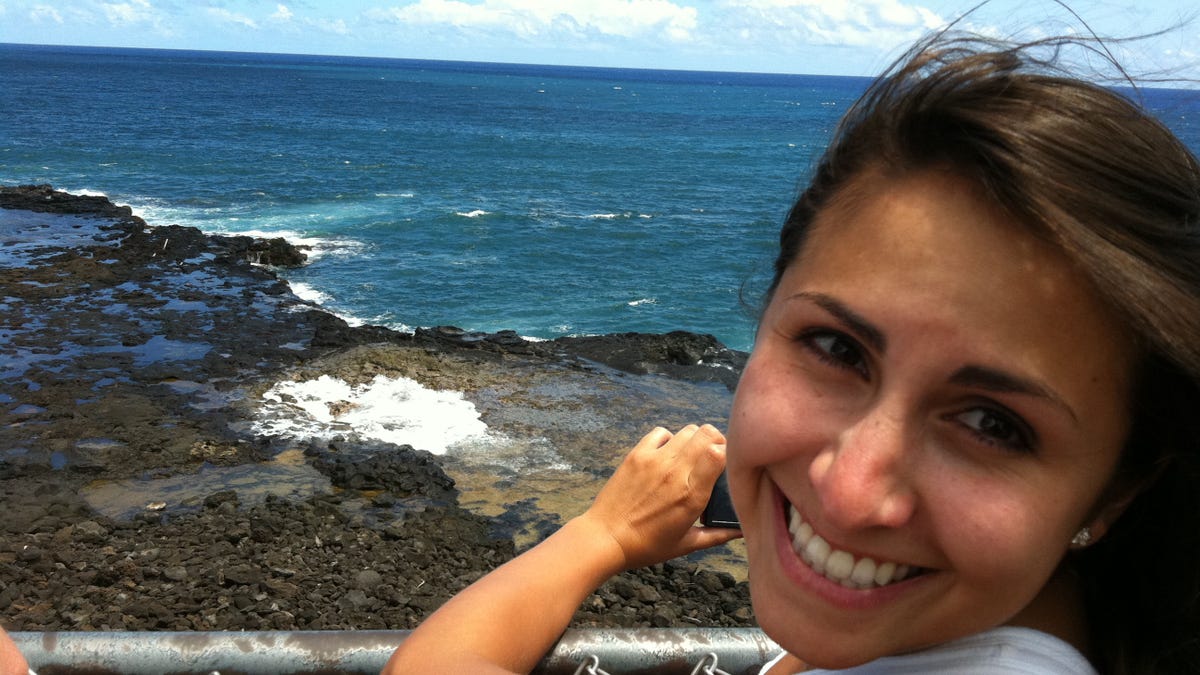
Mikaela Knapp, 25, is fighting for access to an experimental cancer treatment currently being tested by Bristol-Myers Squibb, Genentech and Merck. (Image courtesy of Keith Knapp)
Two years after they tied the knot, Keith Knapp and his high school sweetheart, Mikaela, 25, were faced with a devastating diagnosis: Mikaela had a rare form of kidney cancer that had metastasized to her bones and brain.
“Over the past six months, [Mikaela and I] have had to face really difficult obstacles and talk about some things we didn’t expect to have to talk about this early in our lives,” Knapp told FoxNews.com.
Now, after six months of failed treatments at the University of California, San Francisco, Knapp and his wife have launched a Change.org petition and media campaign to get Mikaela access to a not-yet-approved form of treatment that they believe could prolong her life.
The drug Mikeala needs – anti-PD-L1 immunotherapy – is an experimental form of cancer treatment currently being developed and tested in clinical trials by several drug companies including Bristol-Myers Squibb, Genentech and Merck. These therapies work by enabling the body’s immune system to recognize and fight tumors.
Though Mikaela has applied to be included in multiple clinical trials for this line of treatment, numerous factors have prevented her from being accepted.
“With her condition, it’s a rare subtype of kidney cancer,” Knapp said. “And then she has brain metastases and pneumonia issues, and then because of the brain [metastases], she has to take steroids to keep swelling down…those are all listed in exclusionary criteria [for clinical trials.]”
However, after consulting with oncologists at Stanford University Medical Center, Knapp was informed of the U.S. Food and Drug Administration’s Expanded Access program, also known as compassionate use. The program allows drug companies to grant patients not eligible for clinical trials access to investigational drugs on a case-by-case basis.
According to Knapp, an oncologist at Stanford has agreed to administer the immunotherapy treatment to Mikaela if a drug company will agree to supply them with the drug. In an effort to get Mikaela access to the drug, Knapp started a Change.org petition on March 15 that has gained nearly 200,000 signatures.
“The reason we’re so interested in the immunotherapies we’re targeting now— we know it doesn’t work in everybody, but in the people it does— the results are just incredibly durable,” Knapp said.
So far, the couple has reached out to Bristol-Myers Squibb, Genentech and Merck for compassionate use access to their immunotherapy treatments. Knapp said Bristol-Myers Squibb denied their request, while Genentech has said they do not have enough medication available to supply anyone outside the scope of their clinical trials.
“Merck is the most promising right now because we haven’t gotten a rejection from them yet,” Knapp said. “[On Monday], their executive director of communications e-mailed and asked for our oncologist’s info, so she could get in touch. We don’t know what this means but it’s good to know they are aware of our petition and we are just waiting to hear back.”
Representatives from Merck and Bristol-Myers Squibb did not respond to FoxNews.com's request for comment.
Genentech confirmed to FoxNews.com that they had been in touch with the Knapp family to discuss their compassionate use policy and clinical trials.
"At this time, we are unable to have a compassionate use program for anti-PDL1 because our current supply is limited to our ongoing clinical studies," a company representative told FoxNews.com in an e-mail. "We are still at an early stage of development, and our focus needs to be on clinical trials to help ensure we are moving toward getting anti-PDL1 FDA approved as soon as possible for people who need it. And at this time, we don’t have enough to provide to anyone outside of our studies. We will continue to evaluate the potential for compassionate use in the future."
Though Knapp said he understands why his wife can’t be included in standard clinical trials due to her rare type of cancer and advanced disease, he believes there could be knowledge gained by offering the drug to patients like Mikaela.
“There might be some value in testing on exceptions-to-the-rules [cases],” Knapp said. “But pharmaceutical companies, if the FDA doesn’t make them do that portion of the testing, they don’t want to expose the risk of it showing some new side effect or issue with their drug. [I’ve read] it costs about a billion dollars to get a drug through the FDA, so delays are very expensive.”
The couple remains hopeful that they might gain access to the immunotherapy treatment they are seeking.
“We would be so happy – even though there’ s a small chance of it working, even if it doesn’t work…just knowing that there’s nothing in the world better to treat her than this, it would leave us with a good taste in our mouth no matter what happens,” Knapp said.
Click for more information and to sign Mikaela’s Change.org petition.








































